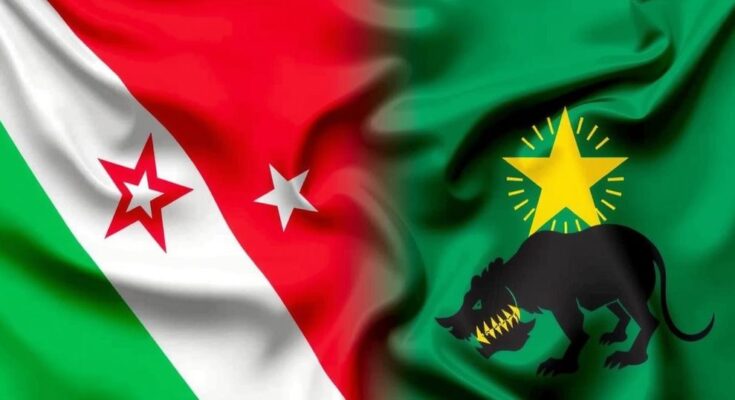Somaliland insists its MoU with Ethiopia is still valid despite emerging agreements between Somalia and Ethiopia, facilitated by Turkish President Erdogan. Somaliland’s leadership under President Abdirahman Mohamed Abdullahi reaffirms commitment to international recognition and the existing MoU, even amid evolving tensions in the region between Somalia and Ethiopia.
In a recent statement, Somaliland officials asserted that their existing Memorandum of Understanding (MoU) with Ethiopia remains valid despite a new agreement forged between Somalia and Ethiopia. Somaliland official Abdulahi Mohammud emphasized that the dynamics of the relationship between Somalia and Ethiopia is a separate issue from Somaliland’s affairs. He reiterated that any outside interference concerning the Somaliland-Ethiopia relationship will not be tolerated.
The backdrop of this assertion stems from Ethiopia’s attempts to secure access to the Red Sea through Somaliland, an offer met with resistance by Somalia. This diplomatic entanglement has resulted in a growing rift, prompting Somalia to expel Ethiopian diplomats and attempt to limit Ethiopian participation in the African Union Transition Mission in Somalia (ATMIS).
During a recent meeting mediated by Turkish President Recep Tayyip Erdogan, both Somalia and Ethiopia agreed to collaborate on commercial and bilateral agreements while respecting Somalia’s sovereignty. However, Horn of Africa political analyst Abdurahman Seid indicated that phrases in the Ankara Declaration suggest a potential invalidation of the MoU with Somaliland, a view that conflicts with Somaliland’s claims of its validity.
Somaliland’s political landscape has undergone a transformation with the recent election of President Abdirahman Mohamed Abdullahi, who has promised to bolster efforts to achieve international recognition and ensure the legal formalization of the MoU with Ethiopia.
The tensions involving Somaliland, Somalia, and Ethiopia are deeply rooted in historical and political complexities. Somaliland, having declared independence from Somalia in 1991, has sought international recognition as a sovereign state. Ethiopia’s interest in gaining access to the Red Sea, while bypassing Somalia, has created a delicate balance of relationships and has led to diplomatic strains. The recent Ankara Declaration coincides with a significant alteration in the regional political landscape, especially with the new leadership in Somaliland, prompting a reevaluation of existing agreements.
The statements emanating from Somaliland assert the continued validity of their MoU with Ethiopia, despite pressures from Somalia. As diplomatic dialogues progress between Somalia and Ethiopia, the future of the Somaliland-Ethiopia agreement remains uncertain. With new leadership in Somaliland vowing to uphold and pursue their agreements, the intricacies of regional politics will be pivotal in determining the outcome of these diplomatic relations.
Original Source: www.garoweonline.com




